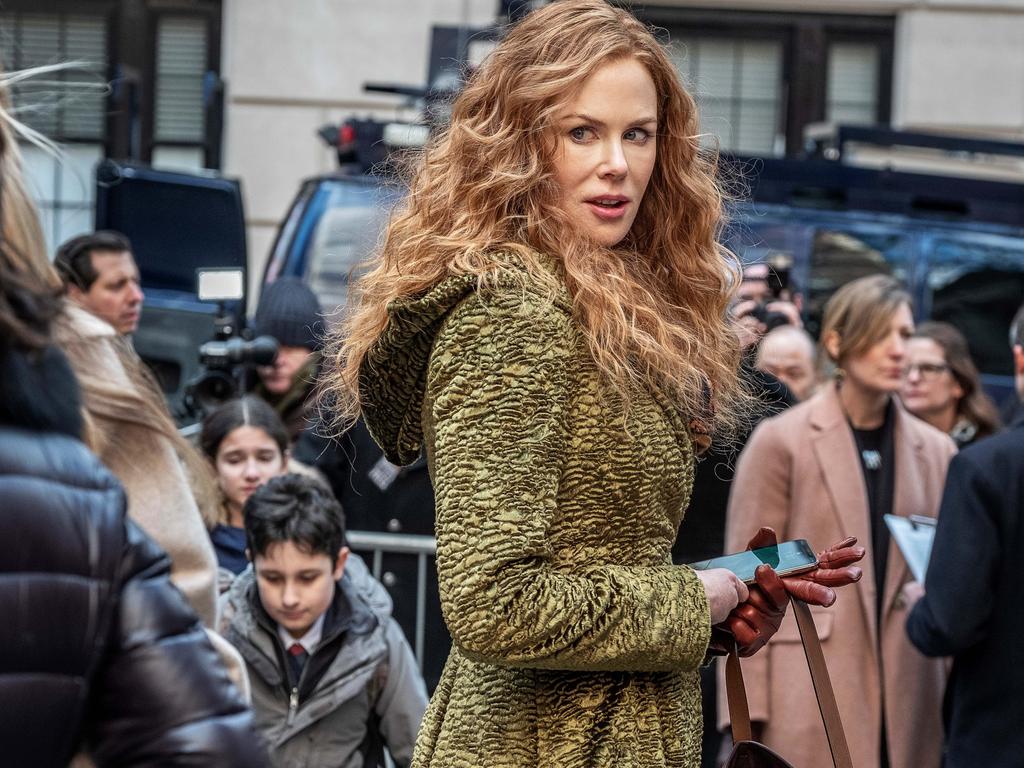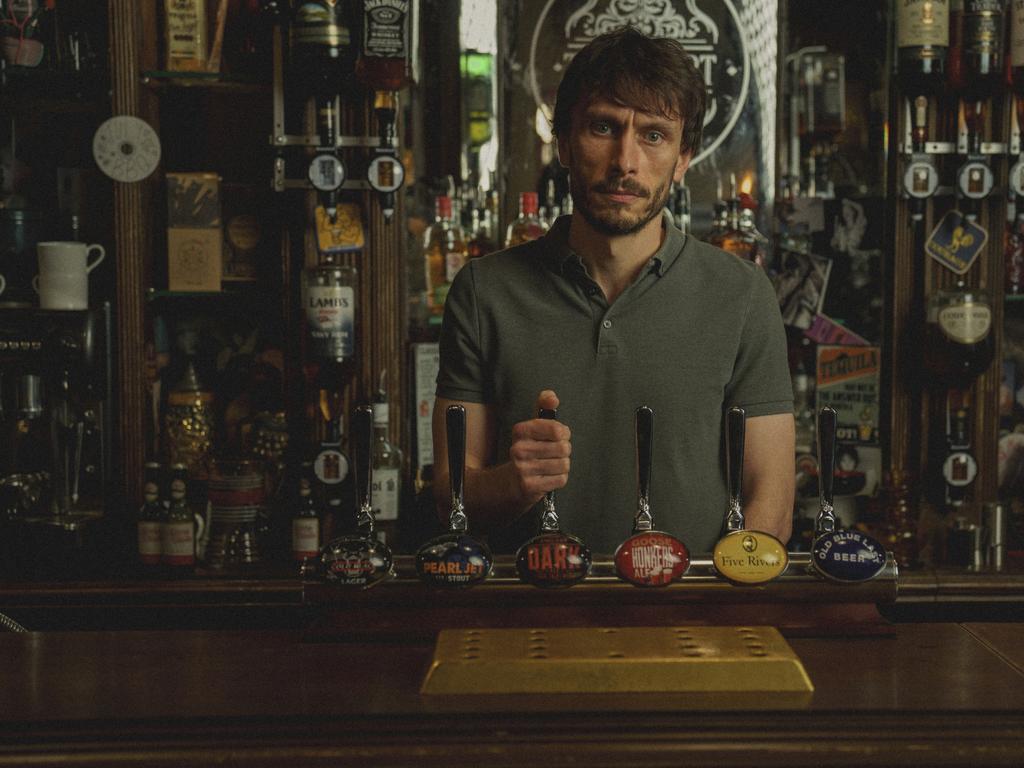Lifting the lid on the truth behind Black Panthers
Readers might recall the 1970s fear and hostility that surrounded the Black Panther Party for Self Defense. Its role is under considerable review in America’s still-complicated racial narrative.

If you were around in the early 1970s you might recall the fear and hostility that surrounded the Black Panther Party for Self Defense in that confrontational era. Founded by Huey P. Newton and Bobby Seale in October 1966, what quickly became the most influential militant black power organisation in the US challenged politicians, defied the police, and protected black citizens from police brutality. Dressed in black, they openly bared arms and fought back using lethal force.
And, at the same time, they provided food, clothing, and transportation to black communities. Rather than integrating American society, members wanted to change it fundamentally, the Panthers challenging racism and social humiliation directly, celebrating self-respect and racial pride.
The New York Times wrote in 1967 that to write them off as a fringe group of little influence was to miss the point, “The group’s roots are in the desperation and anger that no civil-right legislation or poverty program has touched in the ghetto”.
But the Panthers faced not just the cops but also the FBI which, under J. Edgar Hoover, that “scourge of Nazis, Communists, and subversives”, as the Atlantic called him, was determined to strongarm the Panthers into submission by any means, most of them illegal.
This is the background to the remarkable story of Huey Newton dramatised in the new six-part Apple TV series The Big Cigar. It comes at a time when the role of the Black Panthers is under considerable review in America’s still-complicated racial narrative, the police violence and transgression that inspired the Panthers, a heady, often intoxicating mix of committed political activists and wannabe-criminal types, is hardly absent from daily life.

In a heightened cinematic style, it tells of the way Newton’s famous escape to Cuba was orchestrated by his friend Hollywood producer Bert Schneider, as the FBI led a nationwide manhunt to catch him. All under the guise of a new movie called The Big Cigar. Newton is on the run after being accused of shooting a prostitute, who later died, and of pistol-whipping a tailor in a disagreement over the price of a suit.
And the series is as bold and audacious as Schneider’s proposal was.
It must be said Newton was no angel, accused of running a parallel organisation devoted to crime and involvement in a string of murderous escapades. He died at the age of 47 in 1982, murdered in a shooting, an unemployed drifter. As the writer Courtland Milloy sadly said, he died “by the gun in the same neighbourhood where he had first advocated picking up the gun.”
Schneider was buoyant, and flush, with the success of his film Easy Rider in 1969, celebrating the outsider sensibilities of the counterculture, and the following Five Easy Pieces, which helped launch the so-called New Hollywood, where young filmmakers dominated the old school financiers for a while.
And the charismatic producer, a supporter of egalitarian causes, financially backed the Panthers and their various educational and cultural programs. “He realised the power that culture played in shaping ideas,” Joshuah Bearman, an executive producer of The Big Cigar, wrote in the 2012 Playboy magazine article that inspired the series.
The series is written by Jim Hecht, who serves as executive producer with the experienced writer and producer Janine Sherman Barrois, under their Folding Chair production company, with Barrois also the showrunner. Don Cheadle, that multi-award-winning talent, is director for the first two episodes, and executive producer.
Director of photography is the respected and versatile Suki Medencevic, best known for his impressive work on Ryan Murphy’s American Horror Story, his approach here stylishly hyperactive.
He and his director cleverly and wittily get the period’s sense of zeitgeisty chaos just right, much of it drug-fuelled and self-indulgent, with a kind of time capsule authenticity. The political and cultural nervous breakdown of those years is rendered with alarming accuracy.
Their use of the split screen mirrors its brief flowering in the late 60s and early 70s in movies such as The Thomas Crown Affair, Woodstock, and The Boston Strangler, making expressive use of its multi-windowed possibilities. There’s also a terrific funky soundtrack from Grammy-winning Robert Glasper that helps ground what Rolling Stone called the period’s “libidinous free-for-all”.
Hecht was co-creator of Winning Time: The Rise of the Lakers Dynasty, the madcap, full volume, highly stylised account of the creation of the Magic Johnson-led Los Angeles Lakers of the 1980s, which saw the charismatic Johnson win five championships with the franchise, alongside Kareem Abdul Jabaar and his trademark ambidextrous “skyhook” shot.
It all takes place against the backdrop of seismic cultural and economic changes in America, something that Hecht emulates to some extent in this fabulous romp, both a political thriller and a kinetic, satirical heist narrative.
Charismatic Andre Holland, from Moonlight, plays Newton in an enthralling performance reminiscent of the young Denzel Washington, Alessandro Nivola portrays Bert Schneider, and P.J. Byrne is Stephen Blauner, the two white men who played such a crucial role in assisting Newton’s escape to Cuba. They are all terrific.
The ensemble surrounding them is deep and obviously the characters are well researched and the nonlinear plot line adds propulsion to the narrative while filling in Newton’s various backstories.
He tells of growing up with racism, police still killing black people – “You might see the police as protection,” he says, “but to us they were an occupying force” – and how he formed the Panthers with Bobby Seale.
He speaks of the way his head “was in the books”, how he learned of his constitutional rights, carrying a copy of the penal code to confront the authorities after he was “in the crosshairs of every cop in the country” and how he was forced into confinement for a crime he didn’t commit. “They wanted to see me destroyed,” he says. “Somehow, deep inside I knew I had to fight.”
The series is clear which side it supports, regardless of its comic, satirical edge, something you can accept or not. “I believe Huey Newton and the Panthers formed because they were sick, exhausted, and grieved by police brutality,” Barrios, who is also black, says. “There was too much blood on the streets. They knew they had to do something”.
In a separate interview she says, “This was an opportunity to actually tell a piece of history, but also get this TikTok generation, which is not necessarily going to watch a biopic, to sit down in their seat and maybe lean in and learn about the Panthers.”
The first episode “Panther/Producer” immediately takes us into a title sequence, after spelling out that the series is based on real events, some fictionalised for purposes of dramatisation. Then follows a pulsating titles sequence, a montage of political images from the period, black revolutionaries in confrontation with both the police and the government, eyes blanked out with yellow strips, and scenes suggestive of a sleazy Hollywood.
A long monologue from Newton abruptly follows, which outlines the plot of the narrative through his eyes, recounted in voice-over, prefiguring much of the visceral caper itself. “They say it’s a nation of laws, but what governs everything is the law of contradictions,” he starts. They are of real concern to Newton; he sees them everywhere. It’s how he was set free from prison – he had been convicted in 1968 for killing a policeman – into a prison. This time of iconography and symbolism.
“It was how the image captured the man,” the famous image of the Black Panther leader appearing for the first time. It’s the now legendary poster of Newton sitting in a rattan throne chair wearing a beret and a black leather jacket while holding a shotgun in his right hand and a spear in his left hand.
“Contradictions”, he says again, “that would have me south of the border running for my life,” forced to flee, he continues, “by the conditions of hate.”
The extended sequence ends with Newton drolly acknowledging the contradiction that is behind the making of the series itself. “The story I’m about to tell you is true, at least mostly true, at least how I remember it, but it is coming through the lens of Hollywood, so let’s see how much of my story they’re really willing to show.”
It then picks up in 1974, Newton out on bail, desperately turning to Schneider with whom he’s developing a movie project. “You’re the hotshot producer,” the Panther leader tells him. “You want to produce something? Produce this.” And so one of the great capers begins. And what a ride it is.
The series has been criticised for the inevitable Hollywood whitewashing as the fictional Newton fears, for being too entertaining given the reality of the Black Independence movement, and diluting the reality in its concentrated focus on the white characters.
Maybe the critic Ellen E. Jones is right with her suggestion that given the FBI’s relentless campaign of sabotage against 20th-century black leaders it is “near-impossible to separate the truth from deliberate distortions or sort these threads into any kind of moral coherence.”
The Big Cigar, streaming on Apple TV+.






To join the conversation, please log in. Don't have an account? Register
Join the conversation, you are commenting as Logout